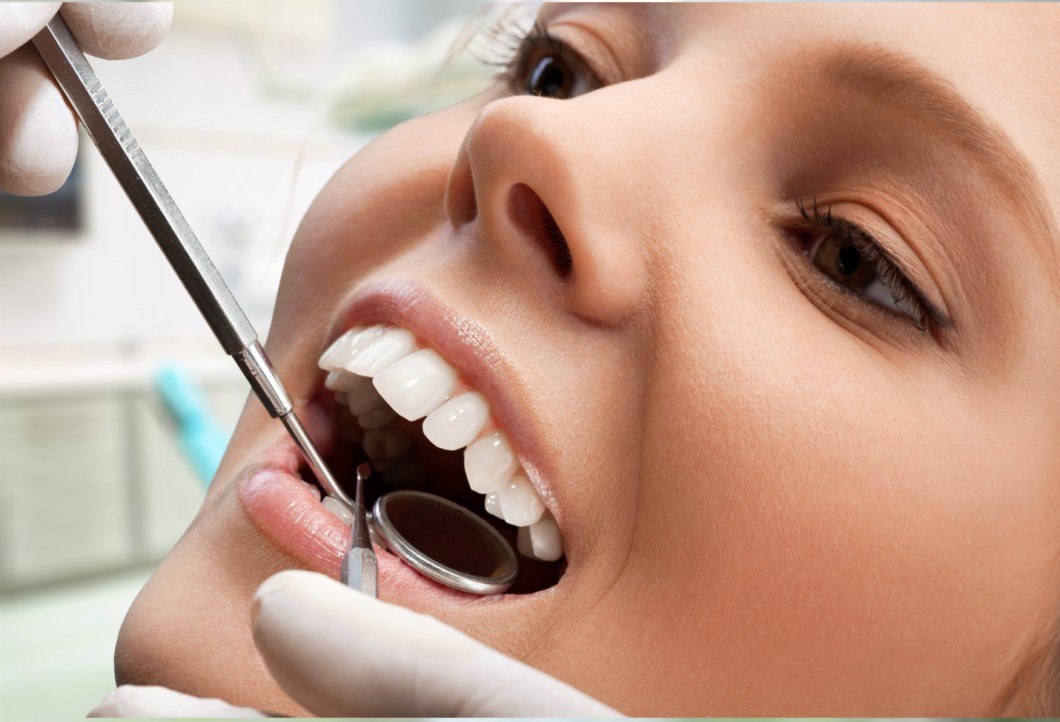
Do you have pain when you eat hot or cold foods? Discomfort when you drink? How about a sharp pain when you breathe cold air through your teeth?
Sensitive teeth are very common and are caused by many different things, from gum disease and cavities to hereditarily thin enamel and teeth whitening treatments.
The good news?
It’s remarkably easy to stop sensitive teeth.
5 Ways to Stop Sensitive Teeth
1. See your dentist

Go to the dentist to find out the cause of your sensitive teeth.
Seeing your dentist is the first step in stopping sensitive teeth, as they will help you find out what the cause is. If you know why your teeth are sensitive, you can quickly find the best cure.
2. Use a Sensitive Teeth Toothpaste

Toothpaste designed for sensitive teeth contain chemicals that can de-sensitise your teeth
Toothpastes designed for sensitive teeth contain chemicals that de-sensitise the area and allow you to breathe, eat and drink without pain. Some toothpastes also contain potassium nitrate and other chemicals that fill in tiny holes in the softer dentine under the enamel and stop pain.
Start with Colgate’s Sensitive Pro-Relief Toothpaste. It’s cheap and very effective, stopping sensitivity dead in its tracks by filling in those tiny tubes and holes in the dentine. For the best effect, use it twice a day as your regular toothpaste.
3. Brush properly

Incorrect brushing is a big cause of sensitive teeth. The key is not to apply too much pressure.
Many people brush incorrectly and this is a major cause of sensitivity and gum recession. Harsh over brushing will gradually weaken and thin the enamel, exposing the dentine underneath and causing gums to recede, both of which will cause sensitivity to some degree.
Using a small-headed toothbrush with soft bristles is important, as well as brushing in small, circular motions rather than scrubbing side to side. Electric toothbrushes are great for those who have a habit of brushing too hard, as you don’t need to apply any pressure while using them.
4. Quit the sugary drinks

It looks refreshing, but if you can give up sugary drinks you will go a long way to preventing sensitive teeth.
Fizzy drinks are usually very acidic and this acid can soften the enamel and wear it away. If you brush straight after drinking acidic drinks, the enamel is too soft and will wear away even faster. Try swilling water around after consuming acidic drinks and waiting an hour before brushing.
Fizzy drinks also have monstrously high sugar content and that sugar feeds the bacteria in your mouth, which causes plaque. Plaque build-up then causes irritation of the gum line which leads to gum disease and sensitive teeth. Yikes!
The best option? Just quit those sugary, fizzy drinks. They do taste good though, so at least try limiting them and drinking water afterwards.
5. Are you stressed?

Stress can cause tooth grinding and jaw tension.
Stress impacts our lives on so many more levels than most people think and affects our health negatively in countless ways. Grinding your teeth in your sleep is usually caused by stress and this can cause teeth sensitivity as well as gum disease and receding gums.
While many people grind their teeth in their sleep, some also hold a huge amount of tension in their jaws during the day as well. Clenching and grinding teeth is terrible on your oral health and you should talk to your dentist about the possibility of a mouth guard to help you sleep without damaging your teeth.
Mouth guards are great for protecting teeth but they’re treating the problem, not the cause. Stress needs to be dealt with on a daily basis to dramatically improve your life, health and your relationships. Try meditation, relaxation and regular exercise such as yoga and walking outside.